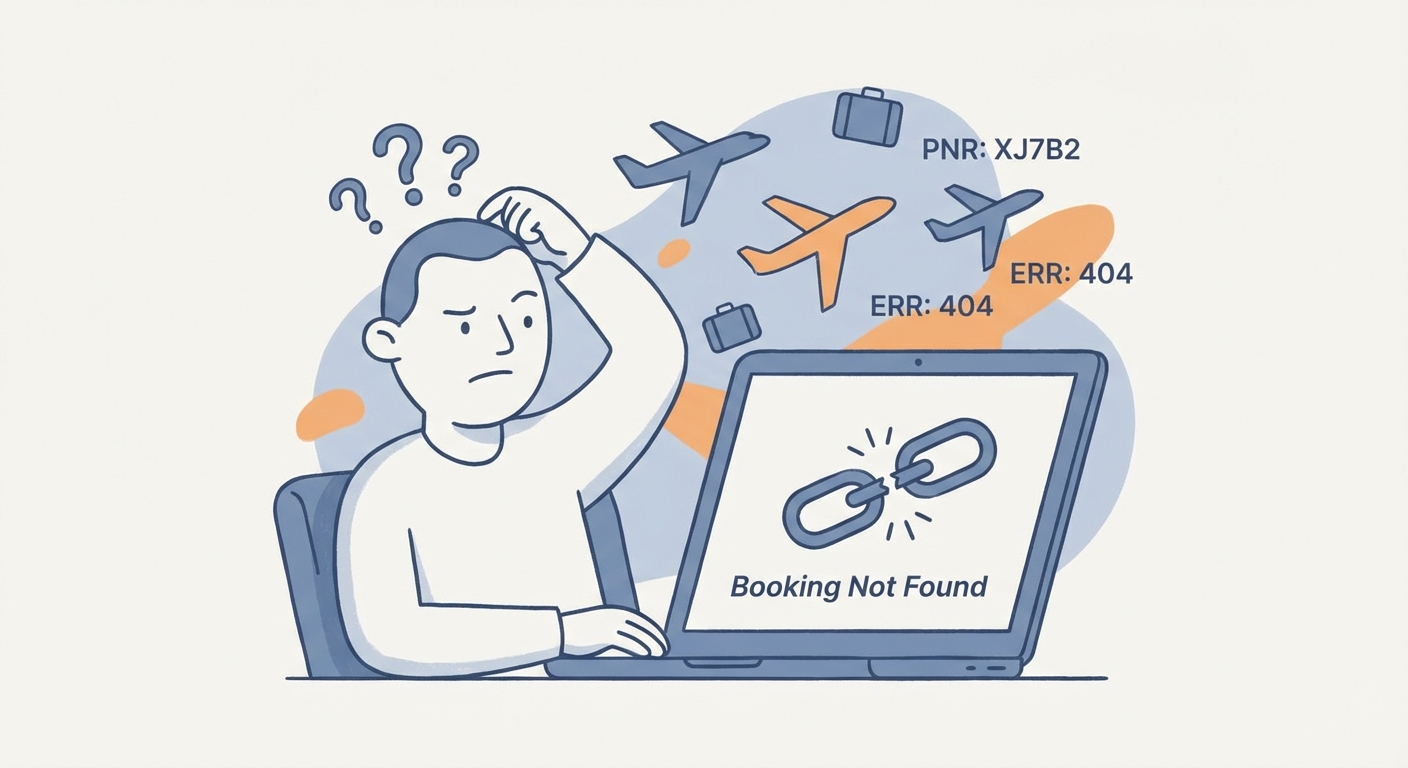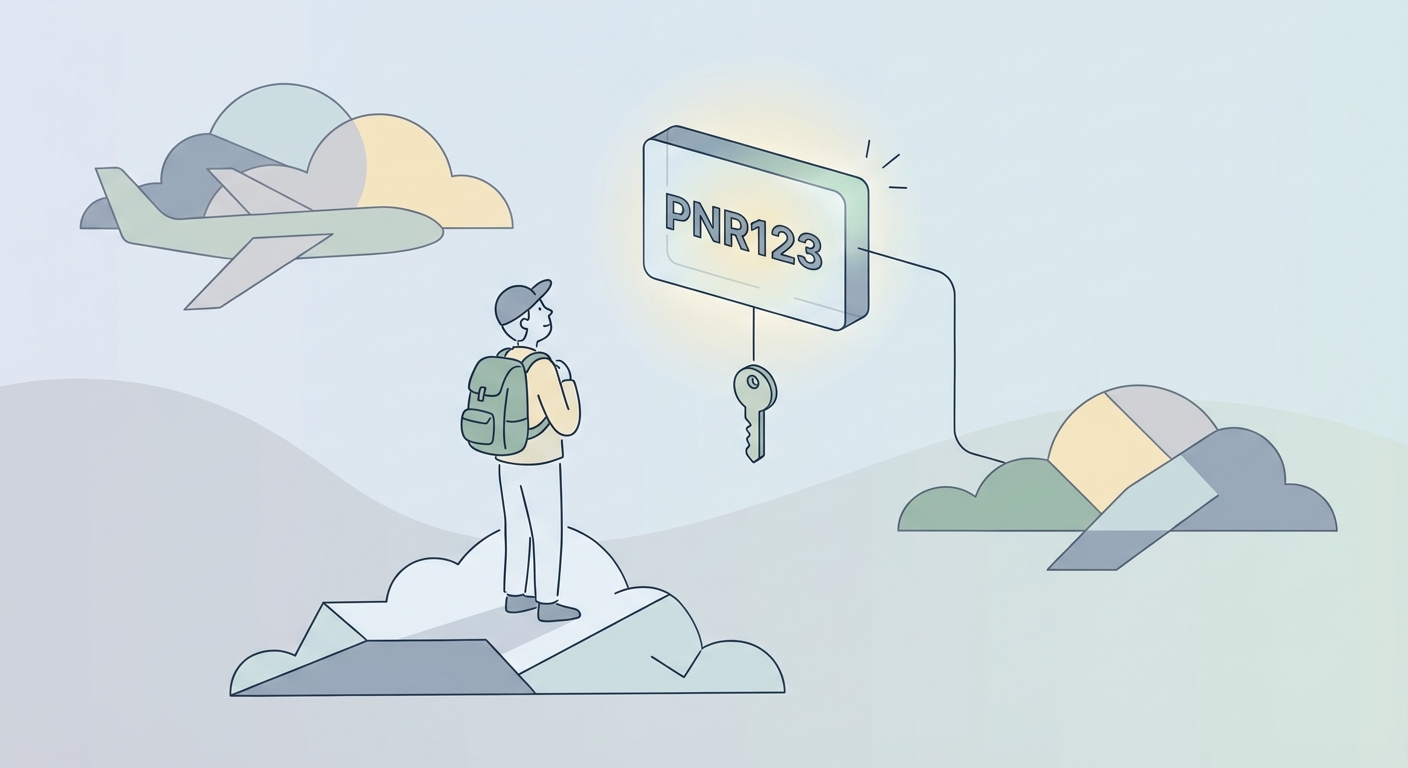Blockchain for Secure Travel Booking: A Traveler's Guide
Blockchain for Secure Travel Booking: A Traveler's Guide
Introduction: Why Blockchain Matters for Modern Travelers
Ready to revolutionize your travel experience? Blockchain technology is poised to transform how we book and manage our trips, offering unprecedented security and transparency.
The surge in online travel bookings has unfortunately led to a parallel increase in fraud and data breaches. (Dark Web Travel Agencies Fuel $37B Fraud Crisis) This is a serious concern for modern travelers.
Traditional booking systems often rely on centralized databases. (Welcome to the Future of Travel: How Web 3.0 Will Redefine Your ...) This makes them vulnerable to cyberattacks and single points of failure.
Travelers are increasingly demanding greater control over their personal data and transparency in their transactions. They want to know their information is safe.
Blockchain is a decentralized, immutable ledger that records transactions across a network of computers. Think of it as a digital record book that everyone shares, making it extremely difficult to tamper with. Being decentralized means no single company or entity has complete control, making the system more resilient and less prone to single points of failure. Immutability means once a record is added, it can't be changed or deleted, ensuring the integrity of your booking details.
Key features include transparency, enhanced security, and the absence of a central authority. This ensures that no single entity controls the data.
Beyond cryptocurrencies, blockchain is revolutionizing industries. For example, it enhances security in IoT systems and streamlines supply chain management.
This diagram illustrates how blockchain can secure your travel bookings, ensuring a more trustworthy experience.
- Blockchain offers enhanced security against fraud and data theft, a major concern for travelers using online booking platforms.
- It increases transparency in pricing and booking processes. This ensures travelers get fair deals without hidden fees.
- Improved efficiency and reduced costs benefit both travelers and travel providers. This makes travel more accessible and affordable.
As we explore further, you'll see how these benefits are transforming the travel industry, from secure identity management to streamlined booking processes.
Use Cases: Blockchain Applications in Travel Booking
Did you know that blockchain could make travel bookings as secure as Fort Knox? Let's explore how this technology is revolutionizing the way we plan our adventures.
One of the most promising applications of blockchain in travel booking is secure identity verification. Imagine a world where your digital identity, stored securely on a blockchain, allows for seamless and verifiable authentication. This system significantly reduces the risk of identity theft and fraud associated with fake bookings and travel documents.
- Digital identities on the blockchain ensure travelers' identities are secure and verifiable.
- It minimizes identity theft and fraud related to fake bookings.
Self-Sovereign Identity (SSI) solutions are prime examples of this, giving travelers complete control over their personal data. This puts you in charge, ensuring only necessary information is shared, enhancing privacy and security.
Tired of hidden fees and intermediaries? Blockchain enables decentralized booking platforms that connect travelers directly with service providers like hotels, airlines, and tour operators. This direct connection cuts out the middleman, leading to lower transaction fees and increased transparency in pricing.
- Direct connections mean fewer intermediaries.
- This structure leads to lower fees and transparent pricing.
Blockchain-based platforms are emerging to facilitate bookings for flights, accommodations, and experiences. These platforms promise a more equitable ecosystem for both travelers and service providers.
Ever been frustrated with delayed refunds or unclear booking terms? Smart contracts offer a solution by automating the execution of travel agreements based on predefined conditions. Think of them as self-executing contracts that ensure fair treatment for travelers and providers alike.
- Smart contracts are automated based on conditions.
- This reduces disputes and ensures fair treatment.
For example, smart contracts can automatically trigger flight delay compensation or resolve hotel overbooking issues, ensuring you're not left stranded.
This diagram shows how smart contracts can automate travel agreements, making processes smoother.
As Blockchain Technology: Emerging Applications and Use Cases for Secure and Trustworthy Smart Systems explains, blockchain eliminates the need for a trusted third party, reducing complexities and improving security.
These advancements promise a future where travel booking is more secure, transparent, and efficient.
GoTriply: Planning Secure & Personalized Adventures with AI
Ready to trade generic itineraries for adventures that truly resonate with you? Platforms like GoTriply combine ai with blockchain to offer secure and personalized travel experiences.
GoTriply acts as your ai-powered travel companion. It crafts personalized itineraries based on your unique preferences and adventure style.
- Discover hidden gems and local experiences matched to your interests. This includes everything from thrilling hikes to cultural immersions.
- Ai analyzes your past travel history, preferred activities, and budget to suggest optimized routes and activities. It minimizes planning time and maximizes enjoyment.
- Ai algorithms can also predict potential disruptions. For example, it can suggest alternative routes based on real-time weather conditions or traffic.
Say goodbye to generic travel plans and hello to unforgettable adventures designed just for you.
GoTriply assists with booking hotels and activities. It prioritizes security and traveler protection.
- Focus on verified and reputable providers to minimize booking risks. This helps prevent fraud and ensures quality service.
- Blockchain technology can be integrated to verify provider credentials and certifications. This adds an extra layer of trust. For instance, a hotel's certifications could be stored on a blockchain, allowing GoTriply to instantly verify their legitimacy.
- Smart contracts can automate booking agreements. This ensures transparency and automatic refunds in case of cancellations or service failures. For example, if a booked tour is cancelled, a smart contract could automatically release funds back to your account.
Enjoy peace of mind knowing your travel arrangements are secure.
GoTriply offers a range of international and domestic travel packages. These cater to diverse adventure styles and budgets.
- From backpacking trips to luxurious getaways, find the perfect package to ignite your wanderlust. Ai personalizes these packages to match your preferences.
- Blockchain can secure package components. This validates hotel bookings and activity reservations to prevent overbooking or scams.
- Blockchain promotes transparency. This ensures clear terms and conditions without hidden fees in travel packages.
Let GoTriply handle the logistics. This allows you to focus on the thrill of exploration. As Blockchain Technology: Emerging Applications and Use Cases for Secure and Trustworthy Smart Systems notes, blockchain can eliminate the need for a trusted third party, reducing complexities and improving security.
Blockchain and Travel Insurance: A Safer Journey
Did you know travel insurance claim disputes are a major source of traveler frustration? Blockchain offers a way to make journeys safer by adding trust and transparency to the insurance process.
Imagine insurance policies stored securely on a blockchain. This means increased transparency and immutability, ensuring that policy terms and conditions cannot be altered or manipulated after purchase. This enhances trust between travelers and insurance companies, reducing potential disputes.
- Storing policies on the blockchain creates a tamper-proof record, giving travelers confidence their coverage is secure.
- The immutable nature of the blockchain ensures that policy terms cannot be changed retroactively.
- This transparency can lead to fewer misunderstandings and disputes.
Smart contracts can automate claim processing based on real-time data. For example, Blockchain Technology: Emerging Applications and Use Cases for Secure and Trustworthy Smart Systems explains, smart contracts can trigger automatic payouts for flight delays based on data from flight tracking APIs.
- Smart contracts enable faster and more efficient claim settlements.
- This reduces paperwork and administrative costs for both travelers and insurers.
- Real-time data integration, like flight delays or lost luggage reports, initiates automated claim processes.
Blockchain's immutable ledger helps to prevent fraudulent insurance claims. Verifying the authenticity of travel documents and medical records becomes more straightforward. This reduces losses for insurance companies, potentially leading to lower premiums for travelers.
- The blockchain's tamper-proof nature makes it difficult to submit fraudulent claims.
- Authenticity verification of documents minimizes the risk of fabricated claims.
- Reduced fraud translates to more affordable insurance options for travelers.
Blockchain's features can revolutionize travel insurance, offering a safer and more trustworthy experience.
Overcoming the Challenges: Blockchain Adoption in Travel
Blockchain's promise of secure and transparent travel booking faces real-world hurdles. How can the industry overcome these challenges to fully realize the technology's potential?
One significant obstacle is scalability. Traditional blockchain networks struggle with the high transaction volumes common in travel bookings. Imagine thousands of travelers booking flights and hotels simultaneously.
- Addressing these limitations requires innovative solutions like Layer-2 scaling, which processes transactions off the main blockchain to speed things up, and sharding, which divides the blockchain into smaller, more manageable segments to handle more data.
- For example, sidechains can handle microtransactions like in-flight purchases, while payment channels facilitate faster hotel check-ins.
- These methods reduce congestion on the main blockchain, improving transaction speeds and overall efficiency.
The evolving regulatory landscape adds another layer of complexity. Clear guidelines for blockchain and cryptocurrencies are still emerging.
- Travel companies must navigate data privacy laws like GDPR and comply with anti-money laundering (AML) regulations.
- Ensuring compliance requires careful planning and robust legal frameworks.
- Industry collaboration and standardization are crucial for establishing best practices and navigating legal ambiguities.
Integrating blockchain with legacy travel booking systems presents a significant technical challenge. These older systems often lack the flexibility to easily connect with blockchain networks.
- Developing apis (Application Programming Interfaces) and middleware is essential for seamless data exchange between blockchain solutions and existing infrastructure.
- Interoperability and data standardization are key to ensuring that different blockchain platforms can communicate effectively.
- This integration is vital for a smooth transition to blockchain-based travel booking.
Overcoming these challenges is crucial for widespread blockchain adoption in the travel industry, promising a more secure and transparent future for travelers.
The Future of Travel: A Decentralized Ecosystem
Imagine a world where your travel plans are not just secure, but also governed by a community of like-minded adventurers. Blockchain is paving the way for this future through decentralized ecosystems.
Tokenization is revolutionizing how we perceive and interact with travel assets. Instead of traditional loyalty points, imagine owning digital tokens representing airline miles or hotel room nights.
- These tokens can be traded, sold, or redeemed across various platforms, offering unprecedented liquidity. This flexibility empowers travelers to manage their assets according to their needs.
- Blockchain-based loyalty programs are emerging, offering increased transparency and control. This allows travelers to directly benefit from their loyalty without intermediaries.
- Tokenized vacation rentals are becoming a reality, enabling fractional ownership and easier management. This can democratize access to high-end properties and simplify rental processes.
DAOs are poised to transform travel by creating community-governed platforms. These organizations operate based on rules encoded in smart contracts, allowing for transparent and democratic decision-making.
- Travelers can participate in the governance of travel platforms, influencing decisions on everything from pricing to service standards. This ensures the platform evolves in line with community needs.
- DAOs can reward travelers for their participation, creating a more equitable and engaging ecosystem. This might include voting on proposals or contributing to community initiatives.
- For example, a travel DAO might manage a network of vacation rentals, where members collectively decide on property maintenance and rental strategies. Or, a DAO could organize group tours, with participants voting on itineraries and activities.
Blockchain's integration with the metaverse is unlocking new dimensions in travel. Imagine exploring destinations virtually, collecting digital souvenirs, and accessing exclusive events through tokenized access.
- Virtual tours powered by blockchain ensure authenticity and ownership of digital experiences. This adds a new layer of value for virtual travelers.
- Digital collectibles, like virtual artwork from famous landmarks, can be securely owned and traded. This creates new revenue streams for artists and cultural institutions.
- Tokenized access to exclusive events, such as virtual concerts or behind-the-scenes tours, offers unique experiences. This can enhance traveler engagement and create lasting memories.
The future of travel is not just about reaching destinations, but about participating in a decentralized, immersive ecosystem. Get ready to explore the world in ways you never thought possible.
Conclusion: Embracing Blockchain for Secure and Seamless Adventures
Imagine a future where booking your dream adventure is as secure as finding buried treasure. By embracing blockchain technology, that future is closer than you think.
Blockchain offers a trifecta of benefits perfect for the modern traveler: security, transparency, and efficiency. As Blockchain Technology: Emerging Applications and Use Cases for Secure and Trustworthy Smart Systems highlights, blockchain's decentralized nature eliminates the need for intermediaries, reducing complexity and bolstering security.
- Enhanced Security: Blockchain's immutable ledger makes it incredibly difficult for hackers to tamper with your data, ensuring your travel plans remain safe from fraud.
- Increased Transparency: Say goodbye to hidden fees and unclear booking terms. Blockchain provides a clear, auditable record of every transaction, fostering trust between travelers and providers.
- Improved Efficiency: Smart contracts automate processes, reducing delays and disputes. This leads to quicker refunds and fairer treatment, streamlining your travel experience.
Beyond these core advantages, blockchain promises cost savings and increased trust in the travel industry.
Ready to take the plunge? It's time to explore and adopt blockchain-based travel platforms and services to enjoy a new level of security and convenience.
- Seek out platforms that utilize blockchain for identity verification, like those offering "verified blockchain-powered booking badges," ensuring your personal data is protected.
- Support travel providers embracing decentralized booking systems, cutting out middlemen and lowering costs.
- Look for travel insurance options leveraging smart contracts for automated and transparent claim processing, perhaps indicated by clear explanations of their refund policies.
By supporting innovation in the travel industry, you can help drive the adoption of blockchain technology and create a more secure, transparent, and efficient ecosystem for all travelers.
The travel industry is on the cusp of a decentralized revolution. As adoption grows, we'll see more secure and seamless travel experiences powered by blockchain. Embrace the future, explore the possibilities, and prepare for adventures where trust and transparency are the norm. It’s time to reimagine travel, one secure booking at a time.





